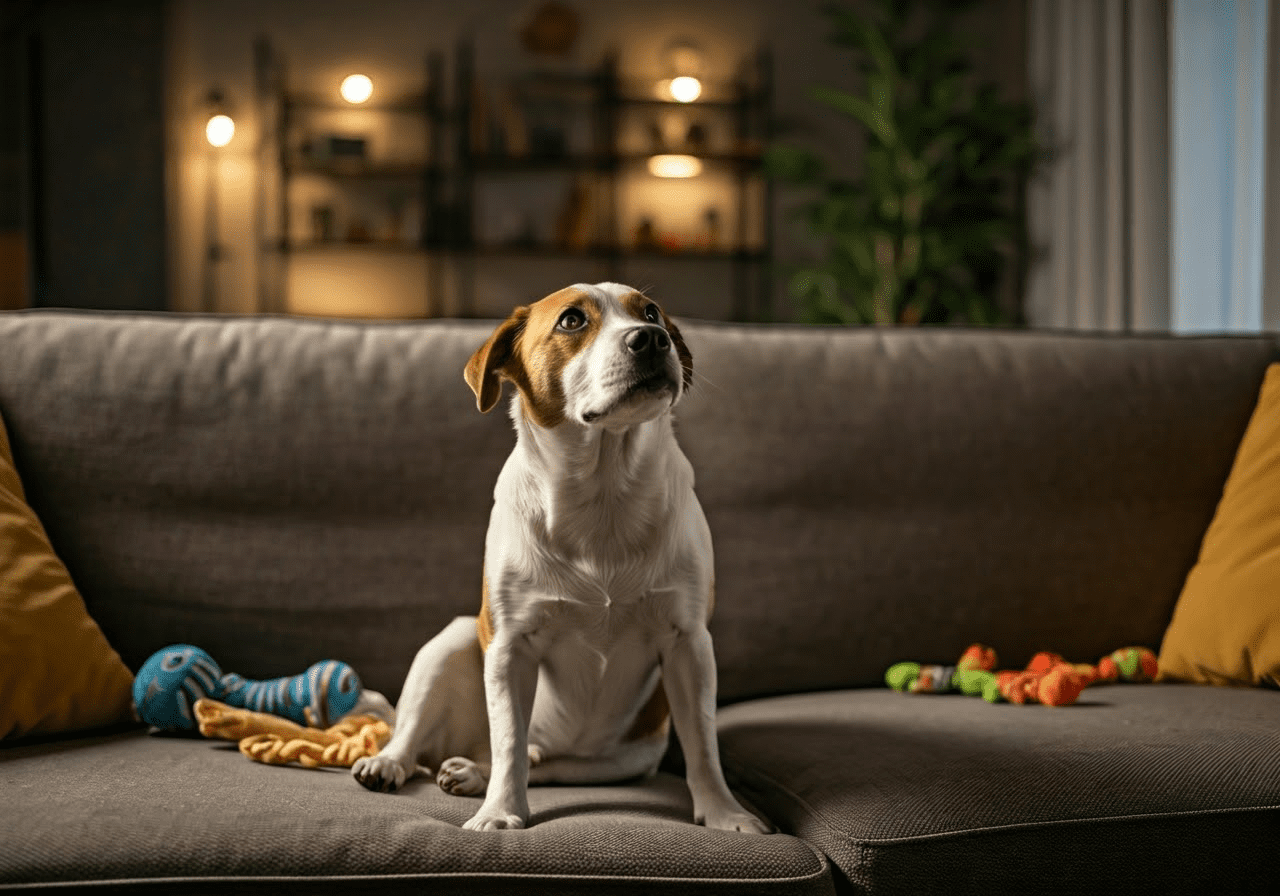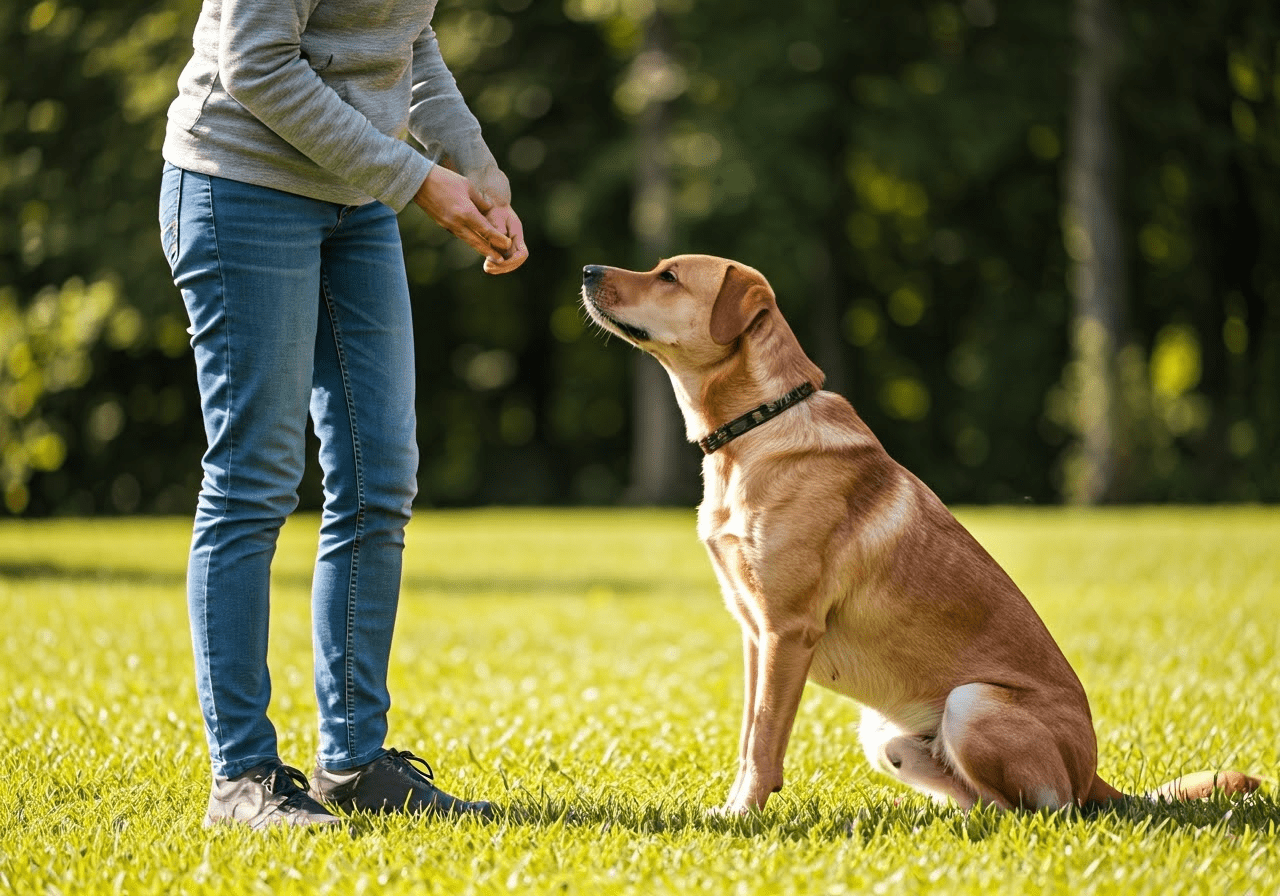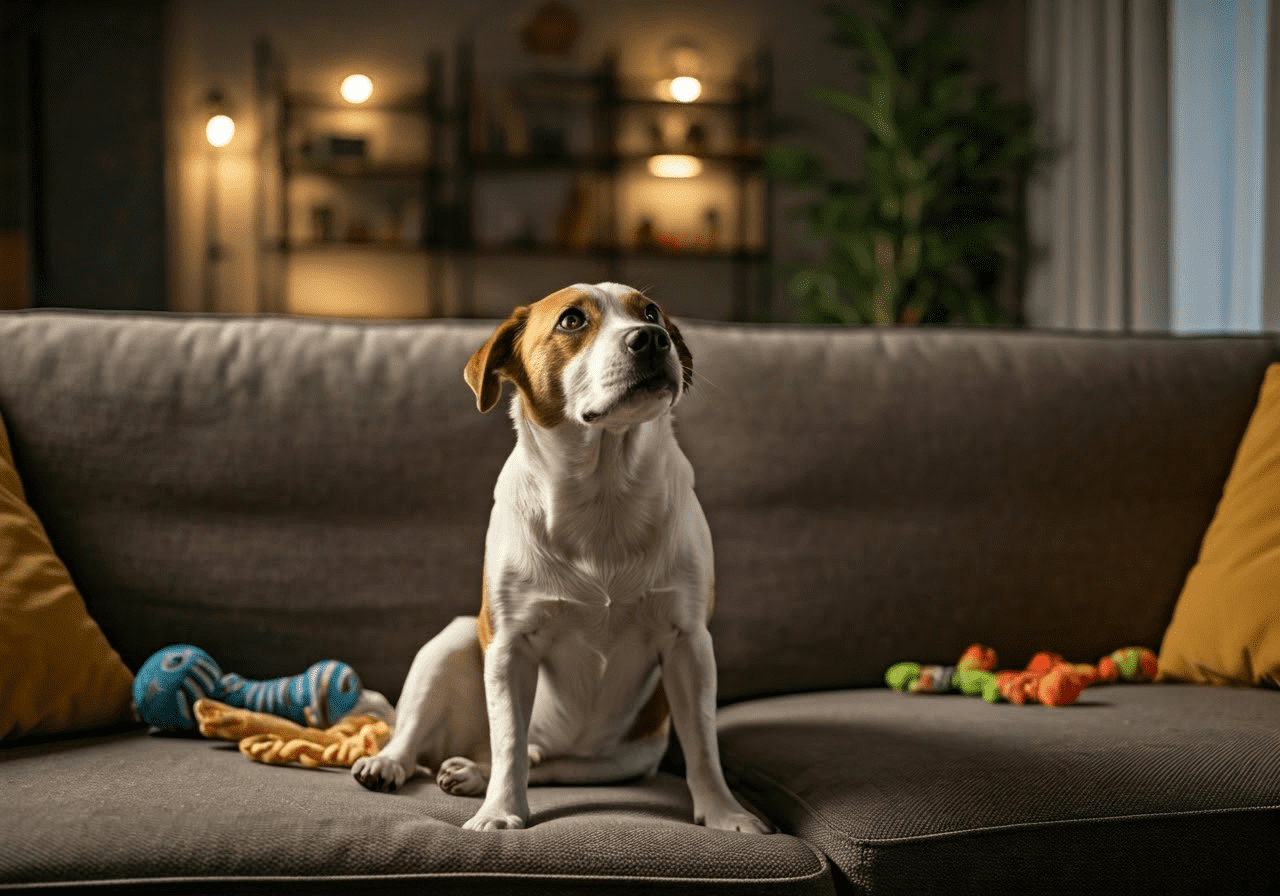why does my dog keep peeing on the sofa?
Table of Contents
Key Highlights
- Discovering dog urine on your sofa can be frustrating, but understanding the cause is key to resolving the issue.
- Medical conditions such as urinary tract infections, bladder stones, or incontinence can lead to inappropriate urination in dogs.
- Behavioral reasons for sofa peeing include territorial marking, anxiety (especially separation anxiety), fear, or excitement.
- Addressing the root cause is essential, whether it’s through veterinary treatment, behavior modification techniques, or a combination of both.
- Retraining, positive reinforcement, and creating a comfortable environment for your dog can significantly help in preventing future incidents.
Introduction
Dealing with a dog that keeps peeing on the sofa can be very frustrating for any pet owner. It doesn’t matter if you have a new puppy learning the rules or an adult dog that used to be fully trained. This behavior can be confusing. This guide will look at different reasons for this habit. These reasons may include separation anxiety, other behavioral issues, and possible health problems. By knowing what causes this behavior, you can take steps to make your home cleaner and happier for both you and your dog.
Understanding the Behavior: Why Dogs Pee on Sofas

Dogs are interesting animals. Their actions often come from instincts and reasons that we might not understand right away. We see the sofa as a place to relax, but our dogs may see it differently. They can smell our scent on the sofa, which comforts them. This may also lead them to mark it, especially if they feel nervous or unsure.
Additionally, dogs do not know that furniture should not be used to go to the bathroom. It’s our job to teach them what is right and wrong. In the next parts, we will look at why dogs pee on the sofa. We will sort these reasons into those that come from their feelings or possible health issues.
The Psychology Behind Canine Marking Behaviors
Let’s be honest: dogs have their own special way of marking their territory, and this can sometimes mean using urine. This behavior isn’t just for male dogs. It is driven by hormones and instincts. For example, unneutered male dogs often feel a strong need to mark, especially at home, to show their dominance and leave their scent for other dogs.
Neutered male dogs and female dogs can also mark their territory if they sense other animals nearby or want to claim their space. They might be saying, “This sofa and this house belong to me!” Territorial marking can increase with new pets, visitors, or changes in household routines. Understanding this natural drive is the first step to managing it.
To reduce this instinct, give your dog other ways to mark. Provide many chances to mark during walks and use positive reinforcement when they pee outside. This can help them focus on acceptable spots instead of your favorite sofa.
Stress, Anxiety, and Excitement: Emotional Triggers
Beyond marking, a dog may pee on the sofa because of their feelings. For example, many dogs have separation anxiety, which means they get upset when their humans leave. When you come home after a long day and see a puddle on the sofa and a sad-looking dog, remember this behavior shows their stress, not anger.
Introducing a new pet can also make a dog feel insecure or jealous. This can change how they act, and they might pee on the sofa to show their presence. It’s like saying, “Hey, I’m still here!”
Changes in routine, a new baby, or moving can add stress for dogs. This makes accidents more likely. It’s important to be patient and give your dog a safe, stable space during these changes to help avoid accidents that happen from their anxiety.
Identifying the Causes: Medical vs. Behavioral
When you want to figure out why your dog is peeing on the sofa, it’s important to know if the cause is medical or behavioral. Understanding this will help you choose the best way to help your pet.
Start by talking to your veterinarian. They can check if there are any health issues causing the problem. Medical conditions can look a lot like behavior problems, so getting a vet’s advice is key. If your vet says everything is okay, you can then look at possible behavior reasons for your dog’s peeing.
When to Consider a Medical Issue
While behavioral issues often get blamed for urinating problems, some medical conditions can also be the cause. If your dog starts having accidents after being house-trained, you should take them to the vet. This is very important, especially if you see other signs like blood in their urine, straining when peeing, or needing to go out more often.
Urinary tract infections (UTIs) are a common cause for accidents. They can cause pain and the urgent need to pee, often without warning. Bladder stones could also be an issue. They can irritate the bladder and make it hard to control urination.
Early detection and treatment are very important for medical issues. By addressing these concerns quickly, you can help your dog feel better and stop the habit of peeing on the sofa.
Behavioral Reasons: Territory, Fear, and Submission
If your vet has ruled out any health issues, the next step is to look at possible behavioral reasons for your dog’s accidents on the sofa. Territorial marking is a common reason, especially in male dogs that have not been neutered, but females can do this too. Neutering can help reduce this behavior.
Fear and anxiety can also lead to the dog peeing inappropriately. Loud noises, new people, or changes in their routine often trigger this. Dogs that are scared might pee as a way to avoid trouble or because they are really scared. This behavior is common in rescue dogs who may have faced trauma before.
By watching your dog’s body language and paying attention to the situations when accidents happen, you can find important clues about their feelings. Once you know what is causing the problem, you can take steps to solve it effectively.
Practical Solutions to Prevent Sofa Peeing

Once you know why your dog is peeing on the sofa, whether it’s due to health issues or bad habits, you need to stop it from happening again. This means using a mix of training, managing the space, and changing the environment to help your dog succeed.
It’s important to remember that punishment will not help. Approach the issue with patience and care. Focus on helping your dog learn the right bathroom habits. By working together, you can make your home a comfortable and safe place for you and your dog.
Training Tips for Proper Bathroom Habits
Whether you have a new puppy or an adult dog that is having accidents, teaching the right bathroom habits is very important. House training is not just about showing your dog where to pee and poop. It is also about helping them know these activities should happen outside the home. Being consistent and using positive reinforcement will help you succeed.
Using a crate can be a great way to help with house training when done the right way. A crate gives your dog a safe space that feels like a cozy den. Dogs usually do not want to soil their sleeping space. Remember, a crate should never be used to punish your dog. They should only stay in the crate for suitable amounts of time.
Here are some extra tips to help your furry friend learn good potty habits:
- Set a regular potty schedule: Take your dog outside often, especially in the morning, before bed, and after meals or naps.
- Reward good behavior: Give lots of praise and treats when your dog goes potty outside.
- Clean up accidents well: Use special cleaners made for pet odors so your dog does not want to go in the same spot again.
Products That Deter Dogs from Peeing on Furniture
Sometimes, training needs some help from the environment. You can stop your dog from peeing on the sofa. The aim is to make the sofa a less attractive potty spot. At the same time, give your dog clear options for where to go.
Think about using pet-safe sprays that keep dogs away from specific places. These sprays have natural ingredients that dogs do not like. This can stop them from marking or peeing where you don’t want it. Always try the spray in a hidden spot on your sofa first. This way, you can check if it will stain or damage the fabric.
You can also place your dog’s bed, favorite toys, or blankets on the sofa when you’re not using it. This way, dogs are less likely to see the sofa as a bathroom. Most dogs try not to dirty their sleeping areas or where their toys are. Keep in mind that the goal is to make the sofa less inviting for potty while showing them the right places to go.
Conclusion
If your pet is peeing on the sofa, it is important to understand why. There can be different reasons like stress, anxiety, or even a medical issue. By finding the cause and using the right training techniques, you can stop this behavior. Be patient and consistent when retraining your dog. You might also think about using deterrent products to keep your furniture safe. Talking to a professional trainer or veterinarian can give you special help for your situation. With the right care and approach, you can help your dog change this habit and keep your home a nice place for both of you.
Frequently Asked Questions
How can I retrain my dog if it starts peeing on the sofa?
Retraining an adult dog takes time and patience. It’s a good idea to talk to your vet first to make sure there are no issues like incontinence. Use positive reinforcement by giving rewards when your dog goes potty outside. Consider crate training or not allowing your dog on the sofa while you are retraining.
Are certain breeds more prone to this behavior?
Any dog can have behavior problems, but some breeds may be more likely to mark their territory. Small dog breeds often have issues with soiling inside the house. Male dogs, particularly those that have not been neutered, tend to mark more. Still, with proper training and managing their environment, you can help reduce these behaviors.


